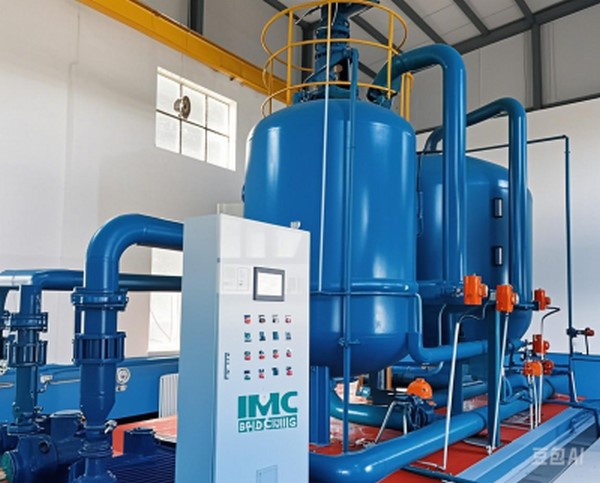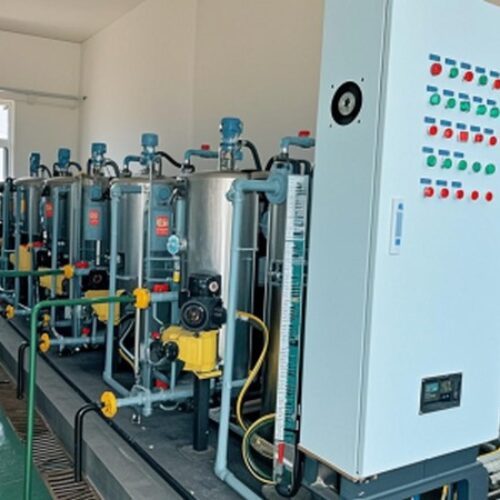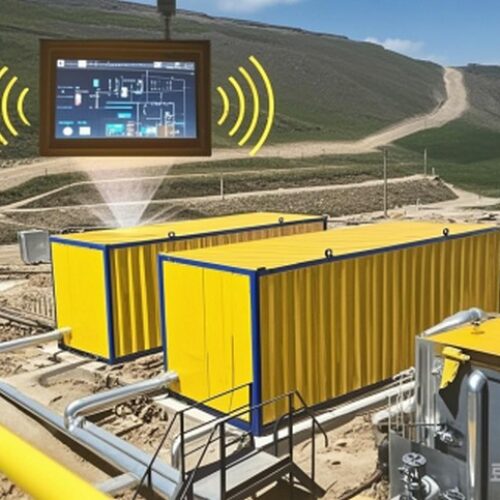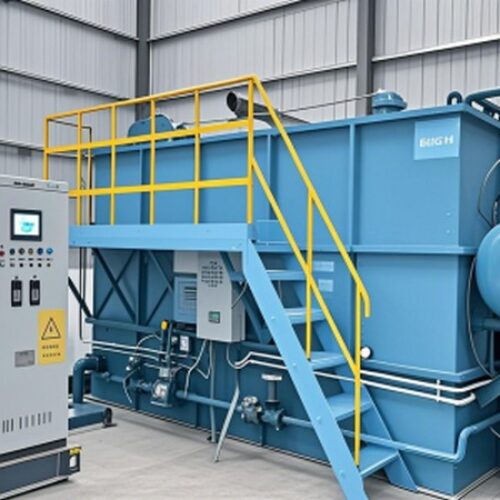Deskripsi
Gravity Oil Separation:
Gravity oil separation, also known as gravity settling or API separation, is a process that utilizes the density difference between oil and water to separate oil droplets from produced water. It is typically used as a preliminary treatment step.
Working Principle:
- Density Difference: Oil droplets, being less dense than water, naturally rise to the surface due to gravity.
- Settling Tank: Produced water flows into a settling tank or separator, where oil accumulates at the surface.
- Skimming Mechanism: A skimmer or weir removes the floating oil layer, while the treated water flows out from the bottom.
Advantages:
- Simple Operation: No complex equipment or chemicals required.
- Low Energy Consumption: Relies on natural gravity, minimizing energy use.
- Effective for Large Oil Droplets: Efficient for separating larger oil droplets and suspended solids.
Disadvantages:
- Limited Efficiency for Small Droplets: Less effective for emulsified oil or tiny oil droplets.
- Large Footprint: Requires significant space for settling tanks.
- Slow Process: Longer retention time compared to other methods.
Fine Filtration:
Fine filtration is used to remove residual tiny suspended solids and oil droplets after gravity oil separation, ensuring water quality meets discharge or reuse standards.
Working Principle:
- Filter Media: Common media include quartz sand, activated carbon, and fiber balls.
- Filtration Process: Water passes through the filter media, where tiny particles and oil droplets are trapped.
- Backwashing: Periodic backwashing is performed to clean the media and restore filtration capacity.
Advantages:
- High Removal Efficiency: Capable of removing fine particles and oil droplets.
- Stable Effluent Quality: Ensures consistent water quality, suitable for high-demand applications.
- Flexible Design: Can be customized with different media and configurations based on specific needs.
Disadvantages:
- Frequent Maintenance: Requires regular backwashing and media replacement.
- Higher Operating Costs: Increased costs due to energy consumption and media replacement.
Combination of Gravity Oil Separation and Fine Filtration:
The combination of gravity oil separation and fine filtration leverages their respective strengths to achieve efficient and reliable water treatment:
- Preliminary Treatment: Gravity oil separation removes the majority of free oil and larger suspended solids.
- Advanced Treatment: Fine filtration further removes residual tiny oil droplets and suspended particles, ensuring compliance with stringent water quality standards.
Summary:
Gravity oil separation and fine filtration are widely used in oil and gas field water treatment. Gravity separation is effective for initial oil removal, while fine filtration provides advanced treatment for finer particles. Together, they form a robust system for achieving high-quality treated water suitable for discharge or reuse.





Ulasan
Belum ada ulasan.